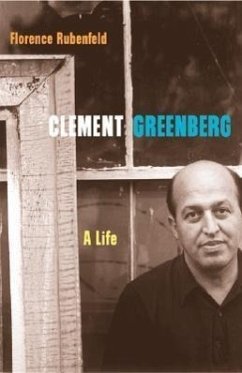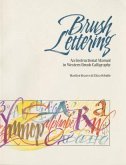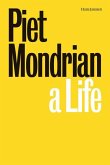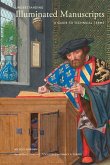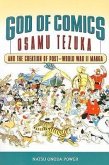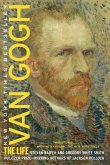The first comprehensive biography of one of America's most influential and controversial art critics. In a fascinating narrative that draws on untapped archives and scores of interviews, art writer and lecturer Florence Rubenfeld traces Greenberg's sharp ascent into the highest realms of New York's intellectual art worlds.
Clement Greenberg was born in the Bronx in 1909, the child of Jewish immigrants from Polish Lithuania. He attended Syracuse University, spent three years sleeping late, reading, and frequenting museums, and then toured the country as a traveling salesman for a necktie business owned by his father. By 1935 he was back in New York working at a routine civil service job. One could hardly have predicted that from these inauspicious beginnings would emerge one of the century's premier cultural critics. In 1939 he wrote "Avant-Garde and Kitsch", the landmark essay that catapulted him from anonymity to the center of a stellar group of intellectuals known as the Partisan Review crowd - Saul Bellow, Irving Howe, Meyer Schapiro, and Lionel Trilling, among others. The subject of Greenberg's essay was modern society examined through popular culture and painterly abstraction. It was his uncanny response to the form abstraction was going to take in advanced American painting that placed him - with no formal training in art history - at the apex of the art world for the next fifty years. Greenberg's independent opinions and combative style soon made him enemies. Greenberg criticized the taste of the Museum of Modern Art, while he sang the praises of artists such as Jackson Pollock, Willem de Kooning, Arshile Gorky, and David Smith when few in the art world took them seriously. By the end of the forties, when his ideas began appearing in Life, Time, and Newsweek, the establishment was compelled to react. Florence Rubenfeld traces the rise and fall of this impassioned and provocative critic, telling his story, in part, through his words and the words of the dazzling array of personalities who surroundedhim. She provides a new assessment of his profound contribution to art criticism, insights into his influences and identity, and an engaging social history of an infamous postwar milieu, peopled by brilliant intellectuals and ground-breaking artists. Clement Greenberg: A Life is an authoritative account of a remarkable man and the vibrant New York art world he helped to define.
Hinweis: Dieser Artikel kann nur an eine deutsche Lieferadresse ausgeliefert werden.
Clement Greenberg was born in the Bronx in 1909, the child of Jewish immigrants from Polish Lithuania. He attended Syracuse University, spent three years sleeping late, reading, and frequenting museums, and then toured the country as a traveling salesman for a necktie business owned by his father. By 1935 he was back in New York working at a routine civil service job. One could hardly have predicted that from these inauspicious beginnings would emerge one of the century's premier cultural critics. In 1939 he wrote "Avant-Garde and Kitsch", the landmark essay that catapulted him from anonymity to the center of a stellar group of intellectuals known as the Partisan Review crowd - Saul Bellow, Irving Howe, Meyer Schapiro, and Lionel Trilling, among others. The subject of Greenberg's essay was modern society examined through popular culture and painterly abstraction. It was his uncanny response to the form abstraction was going to take in advanced American painting that placed him - with no formal training in art history - at the apex of the art world for the next fifty years. Greenberg's independent opinions and combative style soon made him enemies. Greenberg criticized the taste of the Museum of Modern Art, while he sang the praises of artists such as Jackson Pollock, Willem de Kooning, Arshile Gorky, and David Smith when few in the art world took them seriously. By the end of the forties, when his ideas began appearing in Life, Time, and Newsweek, the establishment was compelled to react. Florence Rubenfeld traces the rise and fall of this impassioned and provocative critic, telling his story, in part, through his words and the words of the dazzling array of personalities who surroundedhim. She provides a new assessment of his profound contribution to art criticism, insights into his influences and identity, and an engaging social history of an infamous postwar milieu, peopled by brilliant intellectuals and ground-breaking artists. Clement Greenberg: A Life is an authoritative account of a remarkable man and the vibrant New York art world he helped to define.
Hinweis: Dieser Artikel kann nur an eine deutsche Lieferadresse ausgeliefert werden.

